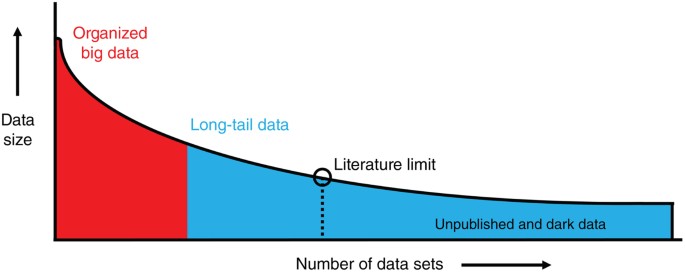
- Select a language for the TTS:
- UK English Female
- UK English Male
- US English Female
- US English Male
- Australian Female
- Australian Male
- Language selected: (auto detect) - EN
Play all audios:
We are in for a summer of discontent. During the pandemic millions of employees, many of them poorly paid, heard themselves described as essential workers and praised as heroes. Now, after
the worst of the pandemic is over, with inflation predicted to rise by 11% come October, public sector staff are offered a 3% pay rise — an 8% pay cut in real terms. It must feel like an
insult. Government is providing a £650 payment in two tranches, in July and October, for those on universal credit. Meanwhile everyone is due for £400, an energy bill discount, and
pensioners will get an additional £300. These one-off payments do not cover the losses to real income caused by inflation and the impact on the poorest is the heaviest. Without any
significant movement after prolonged negotiations over pay and job cuts (or, if you prefer, the term “discussions” which management and government likes to use), the National Union of Rail,
Maritime and Transport Workers (RMT) has resorted to strike action. A harbinger of more to come. Chaos on the railways is clearly not in the interests of the country. But Keir Starmer claims
the dispute is in the interests of the Conservative Party. Support the thousands of workers expected to strike and Starmer alienates the travelling public at a time when his party is still
suffering from “long-Corbyn”. Refuse support and Starmer risks eroding the Labour Party’s key constituency. The trades unions have lost considerable power, but they still provide Labour with
funding and votes. Punished if he does and punished if he doesn’t. Springing this little trap required nothing more than ministers sitting on their hands, “not interfering”. It is often
said we have an incompetent government. It is however highly competent at sowing division and benefiting from it politically. How did we get to a situation in which 1970s-style disputes
between Government, trades unions and employers are again on the cards? And ministers can again use the term “union barons”? Why is Germany so different? And economically has done so much
better? There can be no doubt that the very different relationship between German labour unions and management has contributed to the country’s prosperity, though the picture is not as
uniformly rosy as we might think. The average state pension in Germany is one third higher than that in UK, but regressive taxation and parsimonious social security provision have in the
last two decades increased inequality and widened the poverty gap. In 2019, before the pandemic, 15.8% of Germans were living below the poverty line that is set at 60% of median income,
living on incomes of under £918 a month for a single person. In the UK, 22% were below the poverty line, living on an income below £588 per month for a single person. The worst off Germans
were still significantly better off than the worst off in Britain. Leon Fink, a distinguished history professor at the University of Iowa in Chicago and senior scholar at Georgetown
University, Washington, tells an instructive story in _Undoing the Liberal World Order: Progressive Ideals and Political Realities since World War _II, Columbia University press 2022. It
starts with Ernest Bevin, (above left) former leader of the Transport & General Workers’ Union, Minister of Labour in the coalition government during the war, later Secretary of State
for Foreign Affairs in the government of Clement Attlee (above right). Within four months of Allied victory, Bevin asked the UK’s Trades Union Congress to advise the ruling Allied Military
Control Council (AMCC), set up in Berlin in August 1945, about rebuilding the German trades unions. Achieving this goal was not to be plain sailing, but there was the impetus of Roosevelt’s
New Deal on the one hand and in post-war Germany on the other the advantage of a discredited ruling class, incapable of successfully opposing the AMCC. In January 1947, the directors of key
coal, iron and steel companies in the Ruhr agreed on a policy of “parity co-determination”, with their worker representatives creating nearly equal shared power on Company Supervisory
Boards, part of a two-tier system designed to oversee and appoint members of the Management Board and required to approve major business decisions. “A revived German labour federation, the
_Deutsche Gewerkschaftsbund_(DGB), first established itself in the British zone in April 1947 and by July”, according to Fink, “claimed over two million members”, despite the demoralisation
following defeat in war. “The capstone — separating an authoritarian past from an aspiring democratic future — was ‘the inclusion of labor’.” In 1951 the Christian Democrats led by
Chancellor Konrad Adenauer passed a Co-determination Law and in 1976 Germany’s Social Democrats approved the Codetermination Act. Thus West Germany’s democratically-elected governments
endorsed and expanded the model of union-management cooperation which was introduced on the advice of the British TUC. Thanks to a Labour Party led by “boring” Clement Attlee, Britain made a
major contribution to the foundations of harmonious industrial relations in Germany and so was in part responsible for the German “economic miracle”. A lasting and effective policy that
unfortunately turned out to be for export only. Perhaps we should elect another uncharismatic planner, a hard-working man of integrity, and give social democracy another try. A MESSAGE FROM
THEARTICLE _We are the only publication that’s committed to covering every angle. We have an important contribution to make, one that’s needed now more than ever, and we need your help to
continue publishing throughout the pandemic. So please, make a donation._








